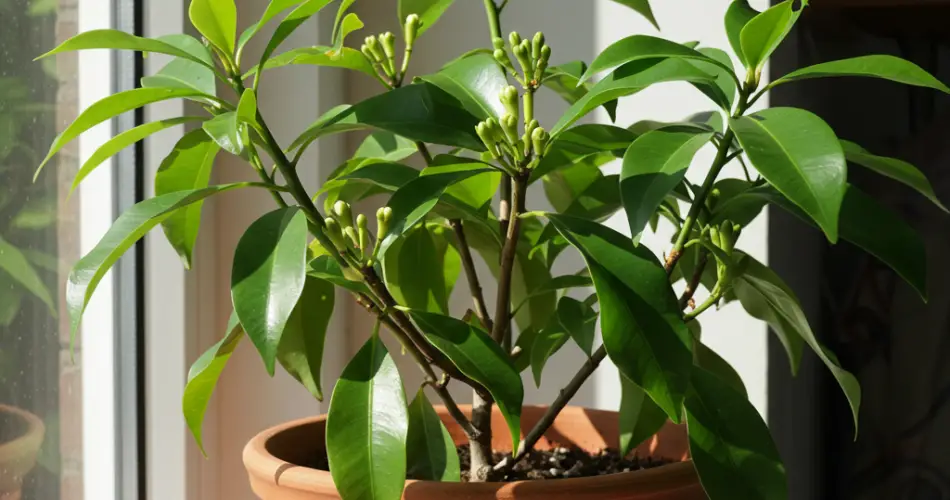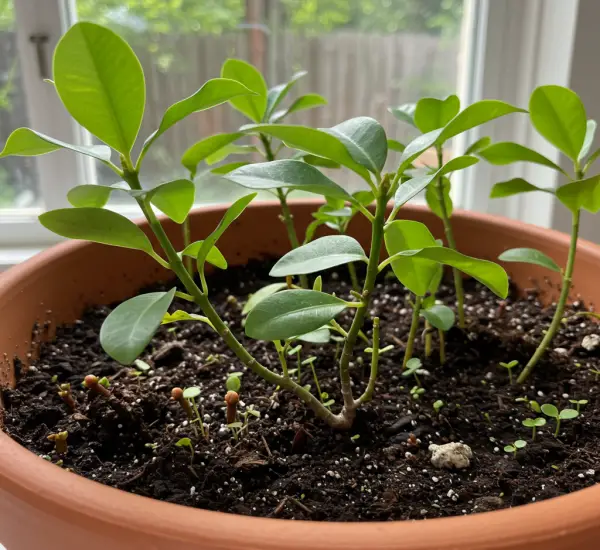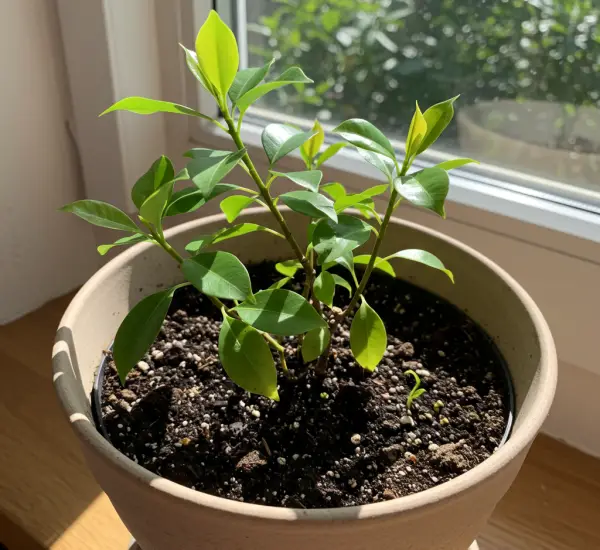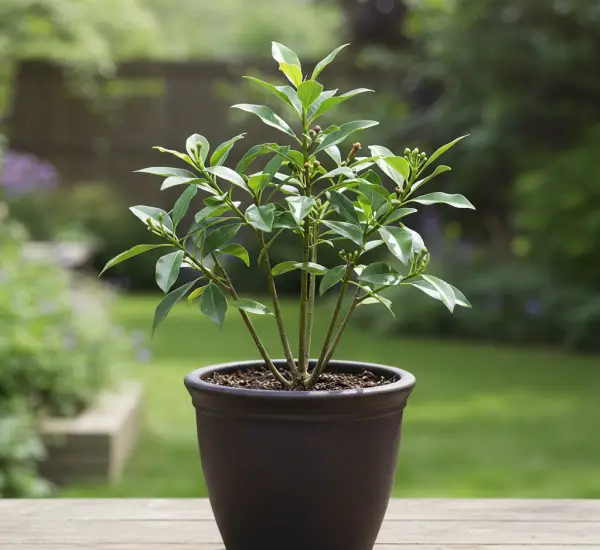Cloves (Syzygium aromaticum) are one of the most fragrant and valuable spices in the world. Their warm, aromatic scent and distinct flavor make them a staple in cooking, baking, and even natural remedies. While cloves are often purchased dried from stores, growing your own at home is entirely possible—even for beginners. With a few simple steps, you can cultivate clove plants that provide fresh, aromatic buds and fill your home with their natural fragrance.
Step 1: Get Fresh Clove Seeds
The first step in growing cloves is obtaining viable seeds. You cannot use the dried cloves found in spice jars; these are no longer fertile. Instead, purchase fresh clove seeds from a trusted nursery, garden store, or online supplier. Look for seeds that are plump, slightly moist, and free from mold. High-quality seeds are the key to successful germination.
Step 2: Prepare a Pot and Soil
Cloves grow best in a fertile, well-draining soil mix. Use a combination of quality potting soil, compost, and a small amount of sand or perlite to ensure good aeration. Choose a pot with drainage holes to prevent waterlogging, which can easily rot the seeds. Before planting, lightly moisten the soil so it is damp but not soggy.
Step 3: Plant the Seeds
Plant the seeds about 2 cm deep into the soil, pressing them gently but keeping them just below the surface. If you’re planting multiple seeds in the same pot, leave 5–7 cm of space between them to prevent overcrowding. Avoid burying seeds too deeply, as cloves need some light to germinate successfully.
After planting, cover the pot with clear plastic or a plastic bag to create a mini-greenhouse effect. This maintains warmth and humidity, essential for germination.
Step 4: Provide Proper Light and Temperature
Place the pot in a warm, bright location with indirect sunlight. Clove seeds require warmth to sprout, ideally between 25°C and 30°C (77°F and 86°F). Direct sunlight can dry out the soil and harm the seeds, so keep them protected from harsh rays.
Step 5: Watering and Care
Keep the soil consistently moist, but never waterlogged. Mist the soil lightly once a day, preferably in the morning, to maintain humidity. Clove seeds are slow to germinate; expect green shoots to appear after 3–4 weeks. Once seedlings emerge, gradually remove the plastic covering to help them adjust to normal humidity levels.
Step 6: Transplanting and Long-Term Care
When the seedlings reach 10–15 cm in height and develop several leaves, they can be transplanted into larger pots or directly into a garden with partial shade. Choose a location with well-draining, nutrient-rich soil.
Fertilize lightly every few weeks with an organic or balanced fertilizer to encourage healthy growth. Keep the plants away from cold drafts or extreme temperature changes, as cloves prefer a warm, stable environment.
Step 7: Patience is Key
Cloves are slow-growing tropical plants, and it may take several years for them to mature and produce flower buds. However, once established, they are long-lived and will continue to produce fragrant buds for years. Regular care—consistent watering, fertilizing, and protecting from extreme conditions—ensures strong growth and healthy flowering.
Extra Tips for Success
-
Seedlings vs. seeds: Seedlings may be easier to grow and bloom faster, but seeds are more accessible and affordable.
-
Drainage matters: Always ensure pots have holes, and soil is light enough to prevent root rot.
-
Temperature control: Clove plants thrive in warmth; if you live in a cooler climate, use indoor pots or a greenhouse.
-
Patience and observation: Monitor seedlings daily for moisture levels, light exposure, and signs of disease.
Conclusion
Growing cloves at home is surprisingly simple with the right approach. Even beginners can succeed by following a few straightforward steps: obtain fresh seeds, use fertile soil, maintain warmth and moisture, and provide patience and consistent care. The reward is a beautiful, aromatic clove plant that not only perfumes your home naturally but also provides fresh, homegrown cloves for cooking and health remedies.
By starting today, you can enjoy the fragrance, flavor, and satisfaction of growing your own cloves—all from the comfort of your home. This simple method ensures that anyone, regardless of gardening experience, can cultivate these exotic and versatile plants.



